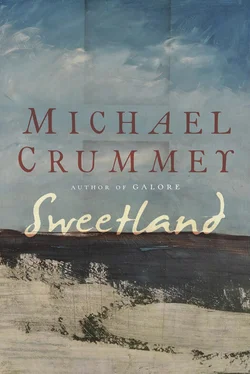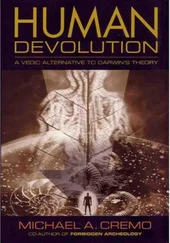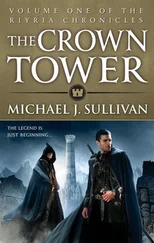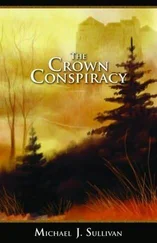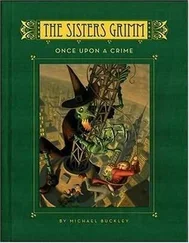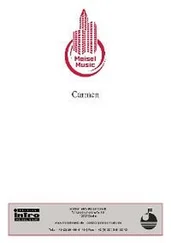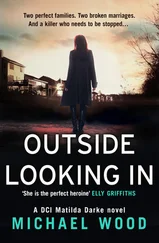Duke stood with his hands on his hips a moment before he began moving the pieces back to their starting positions, glancing up now and then to see how Sweetland was taking it. “I hear you had a little racket with Jesse,” he said.
Sweetland made a dismissive motion with his hand.
Duke turned the board slightly after he had set the pieces, lifted the pawn on the far left ahead two spaces. The same opening, every time. “Your move, Bobby Fischer.”
“I think I’ll sit this one out,” he said.
Duke nodded helplessly. He climbed into the barber’s chair and the two men watched each other in the mirror. “I’m sure Jesse’ll be fine,” he said.
Sweetland went to bed early, not expecting to sleep. He turned his head periodically to check the time, the digital figures changing at such a glacial pace he finally unplugged the clock altogether. Stars through the window, a she-moon’s narrow sliver of light.
She’s on her back, Uncle Clar said when Sweetland first asked what she-moon meant. This was long before he was old enough to understand Clar’s cryptic explanation, and he couldn’t remember now when it came clear to him. Likely it was Duke got there first and passed the details on to him. A year older, and more reckless, always pushing ahead of what was handed out. It was Duke took Sweetland dogging the young couples when they were boys, chasing them up onto the mash or to the meadow out behind the church where they snuck off to mess around in the grass.
Pure devilment at first, doing their best to be an annoyance, pelting the couples with crabapples or spruce cones. Battering the hell out of it then, the young fellow flinging rocks at their heads. It was like hitting a hornets’ nest with a stick. Until it became something more serious and surreptitious. The game about slinking as close as possible, seeing as much as you could. Sweetland trying to describe it to Pilgrim afterwards, dresses pushed above the thigh, the naked skin and busy hands down there. Bare asses silvered in the moonlight. Pilgrim’s eyes wide with blind wonder. Lord Jesus, what a world they were living in.
Watching Queenie Coffin undress through her bedroom window, the summer her sister took sick with typhoid. Queenie Buffett, she was then. The tiny bedroom on the ground floor. Standing up close to the panes to take off her clothes for him, bold as brass. Hair cropped as short as a boy’s, pale nipples on a board chest. Hairless skin down there, that foreign crease looking oddly chaste. A simple pleasure between them, to see and be seen. Hardly a sexual thing at all, Sweetland thought, but for the hard-on that troubled him for hours afterwards. At some point he considered he should do the same for her, but Queenie showed no interest in a tit-for-tat exchange. And it was a relief to him that she did not.
He’d sat behind Queenie in the one-room schoolhouse for two winters and they seemed a pair of sorts because of it. But they were just two among the battalion of youngsters that knocked around in the cove together, fishing for conners off the stagehead, carting their dippers up on the mash to pick berries in the fall. During the quarantine she was moved out of the bed she shared with the sister and they jerried up a room with a cot and sheets hung from the ceiling on the ground floor. Sweetland would visit with her at that window, talking back and forth with her through the glass. There was a wooden vent at the base of the frame and he would smuggle treats to her, sweet-bread, raisins, a whip of licorice. Caught sight of her changing as he made for the window one evening and stopped dead. Queenie coming straight up to the panes when she saw him there. Bored out of her mind probably, pent up and restless. Half a dozen times after that she had undressed for him, presented herself a few minutes before putting on her nightclothes, her manner serious and unhurried. Her nakedness like a new thing to him each time, as if another layer had been peeled away.
And then her sister died. Which, it turned out, was the end of many things. He carried on visiting with her through the weeks of quarantine that followed, but never saw her naked again. Stopped expecting or even wanting it. Years later, it was Hayward Coffin who took her up onto the mash, and Sweetland thought nothing of the fact. The exchange at her window something he’d never spoken of, to Queenie or anyone else. Dead and buried up on the hill now, that young girl and her strange, unacknowledged gift to him.
Sweetland looked over at the clock’s blank face. He couldn’t begin to guess what time it was. Late, was all he knew. He sat up, reached for his clothes. Sidestepped the door, went out the hall and downstairs into the dark of the kitchen. He drew off a glass of water at the sink and drained half in one go. The angry, alien glow on the waterfront flaring beyond Queenie’s house when he glanced out the window.
The fire was lighting the entire harbour by the time he made his way to the shore path, flames coming through the stage’s ceiling, through the door standing open, through the broken panes in the side window. Sweetland could see all the way across to the government wharf and beyond it to the church on the point, clear as day. He could see his boat set loose from the stagehead, drifting away from the fire toward the breakwater. Cinders were dropping through the floorboards, hissing as they hit the water pooled in the landwash underneath, flankers rising lazily on the drafts of heat, floating out across the cove. Sweetland couldn’t get within thirty feet of the burning building but he could smell the gasoline used to set the blaze. The place must have been soaked to go up so fast.
People running out of their houses behind him, shouting over the noise of the fire. Youngsters sent up onto the roofs of nearby buildings to sweep burning embers off the shingles. The Priddle brothers and Reet Verge and a dozen others carted buckets of seawater to put out spot fires in yards and the grass along the paths. Garden hoses sprayed down from houses further up the hill and Glad Vatcher brought his boat along the waterline, dousing the closest buildings with the stream of a pressure washer.
The inferno was so intense that the stage collapsed on itself and fell into the landwash within an hour and there was only watching it then, the entire population standing over the slowly dissipating heat, their clothes and skin stained a pulsing red and orange in the dark light. Sweetland looked up and down the line of eerily lit faces, like some biblical image of the apocalypse. The anonymous arsonists standing there among them, taking it in.
THE ISLAND WAS OVERRUN in the wake of the incident with the lifeboat. As if, for the first time ever, someone had placed Sweetland on a map for strangers to find it. RCMP officers and investigators from the Coast Guard and Transport Canada arriving in twos and threes to take statements from Bob-Sam Lavallee and the Reverend and Sweetland himself.
Bob-Sam had the Coast Guard officers stay at the lighthouse during their visit and they told him what they knew. The men in the lifeboat were, in fact, Sri Lankan and they’d all spent a life’s savings to be smuggled into the United States. It was anyone’s guess how they ended up bobbing around the North Atlantic. There were two that died in the hold during the trip and they thought they were all going to perish down there before they were lowered in the lifeboat and cut loose. Not so much as a drop of water among them.
What about the ship they were on? Sweetland asked.
They was snuck aboard in the dark, Bob-Sam said. And put off in the middle of the night. Never spoke three words to any of the crew. White fellows, they said. But they could’ve been Russian or Scandinavian or Spanish.
There were reporters and photographers coming off the ferry runs for a while as well. Most of them stayed only as long as the ferry was docked and they charged around Chance Cove in a mad rush, snapping photos and taking quotes from the folks they spotted on the wharf or outside the houses. They were like a crowd of wild goats let loose in town, butting their heads into sheds and kitchens to nose around with their cameras, tearing off without so much as a kiss-my-arse. The women going on about the cinnamon colour of the refugees’ skin and the hair on them so black it gleamed like oil. Loveless inviting them in for watery drinks and Jam Jams, making himself out to be a central character in the events. They was a sight, sir, he liked to say, come out of the fog like a boatload of the dead, poor souls.
Читать дальше
